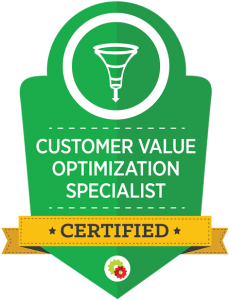Spring Clean your website
Helena Rothwell • April 9, 2025
Spring Cleaning your website: Expert Content Refresh Options for SEO success.
There's nothing like the sun showing up the dusty windows to start us thinking about spring cleaning. But what about your website? When was the last time you gave it a complete refresh? Our website content refresh options deliver fresh, SEO-optimised copy to keep your business relevant and engaging.
- "Expert Copywriter Content" – Our experts draw on their years of experience and knowledge and their understanding of our customer's business' to generate fresh, SEO-optimised human generated copy.
- "Content Refresh" – We review your website’s existing content, create new copy using AI for efficiency and cost-effectiveness, and then apply expert human editing to ensure it aligns with your brand and remains SEO optimised.
- "Refresh+" – As per "Content Refresh" This offering includes monthly updates to ensure your website stays consistently up-to-date and relevant.
Contact Us

Is Your Website Helping or Hurting Your Business? Your website is the cornerstone of your online presence, but is it working hard enough for your business? Whether you're driving traffic, boosting engagement, or converting visitors, your site plays a vital role in your success. Ask yourself: 1️⃣ Is your website generating enough leads or sales? If your site isn’t converting visitors into customers, it’s time to reassess its effectiveness. 2️⃣ When was your website content last updated? Fresh content isn’t just for your audience—it’s essential for SEO. Regular updates signal activity to search engines and keep your rankings competitive. 3️⃣ Does your website display well across devices? With mobile usage dominating internet traffic, a site that isn’t optimised for phones and tablets risks losing a significant chunk of your audience. 4️⃣ How does your site compare to your competitors? If your competitor’s website is slicker, faster, or easier to use, you could be losing business to them. 5️⃣ Is your website easy for Google to find? SEO is the backbone of discoverability. If your site doesn’t appear in relevant searches, you might as well be invisible to your potential customers. 6️⃣ Is your site running quickly and reliably? Loading times matter—a slow website frustrates visitors and gets penalised by search engines. If answering these questions leaves you feeling unsure or frustrated, you’re not alone. Many businesses struggle with outdated or underperforming websites. The good news is that a redesign or refresh can transform your online presence and make your website your most powerful business tool. Why Partner with Us? At Right Hand Consulting, we’re experts in creating websites that deliver results. From bespoke designs to mobile optimisation, SEO, and content updates, we tailor every project to your unique needs. Let us take your website to the next level—helping you attract visitors, engage your audience, and outshine the competition. ✨ Contact us today to get started on a website that works as hard as you do.

ERP implementation is a transformative process that can revolutionise operations, enhance efficiency, and prepare your business for growth. However, like any major undertaking, it requires clear expectations and careful planning to avoid common pitfalls. Having guided numerous businesses through successful ERP implementations, I’ve witnessed both the triumphs and challenges firsthand—and this blog offers insights drawn from real-world experience. Why ERP Implementations Fail (And How to Avoid It) ERP implementation can fail for several reasons, but the good news is that these pitfalls are entirely avoidable. Here’s what I’ve learned through years of experience, and how SMEs can set themselves up for success: Lack of Clear Goals Businesses often start their ERP journey without clearly defined objectives. This leads to confusion and inefficiencies. A better approach is identifying specific problems the ERP system will solve, whether it’s automating manual processes or improving data visibility. Underestimating Resource and Time Requirements Many SMEs dive into implementation expecting it to be straightforward, but ERP projects demand significant time, effort, and teamwork. For example, data migration—from extracting information from legacy systems to restructuring it for the new platform—is a common area where businesses underestimate the workload. Neglecting Team Training Implementing the software is just the first step—your team needs proper training to use the system effectively. Skimping on this can cause disruptions and frustration post-launch. Poor Communication Across Departments ERP systems impact multiple areas of a business, and a lack of collaboration can result in misalignment and errors during implementation. Clear communication is key to ensuring everyone is on the same page. Setting Realistic Expectations Drawing on my experience in ERP implementation, I’ve found that understanding the journey ahead is the cornerstone of success. Here’s what SMEs should expect: Time Investment ERP implementation is a phased process that can take months to complete. Be prepared for a gradual transition to minimise disruptions. Resource Commitment ERP implementation demands financial investment, staff time, and often external expertise. Fortunately, SMEs in Ireland can explore grant aid options, such as those from Enterprise Ireland and Local Enterprise Offices, to ease the financial burden. Change Management Adopting an ERP often requires changing workflows and processes—something that requires collaboration and buy-in across teams. Ongoing Optimisation The initial launch isn’t the end of the journey—regular reviews and Phase Two improvements are key to leveraging the full potential of the ERP system. Tips for Success Having successfully implemented ERP systems for SMEs, here are some actionable tips I often share with clients: Plan Thoroughly Start with a clear roadmap outlining objectives, timelines, and team roles. Clean Your Data Before migrating data to the ERP system, ensure it’s accurate, consistent, and complete. This prevents errors and ensures a smooth transition. Focus on Training Equip your team with the knowledge and skills to navigate the new system confidently. Communicate Transparently Keep all stakeholders informed and involved at every stage of implementation. Final Thoughts ERP implementation is a powerful step towards efficiency, scalability, and growth—but it requires preparation and realistic expectations to succeed. With the right approach, SMEs can navigate the journey confidently and unlock the full potential of ERP systems. Having walked this path with many businesses, I know how daunting it can seem at the outset. But with careful planning and expert guidance, it’s an entirely achievable process—one that paves the way for long-term success. Ready to explore ERP systems for your business? Let’s connect! I’d love to share my expertise, answer your questions, and help you plan the next steps in your ERP journey.










